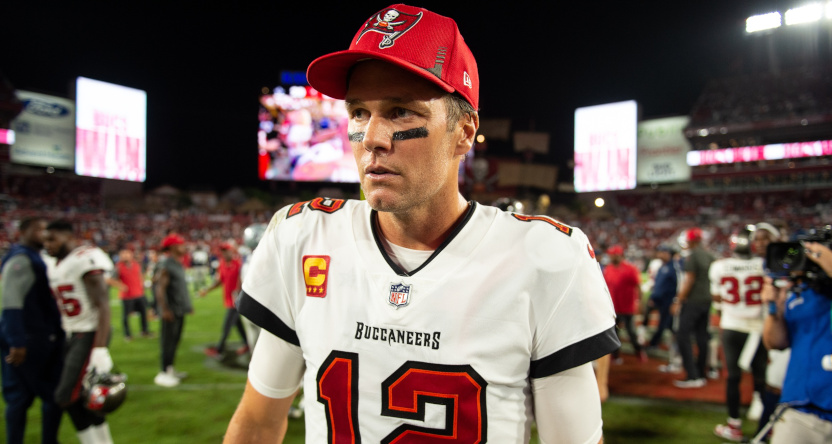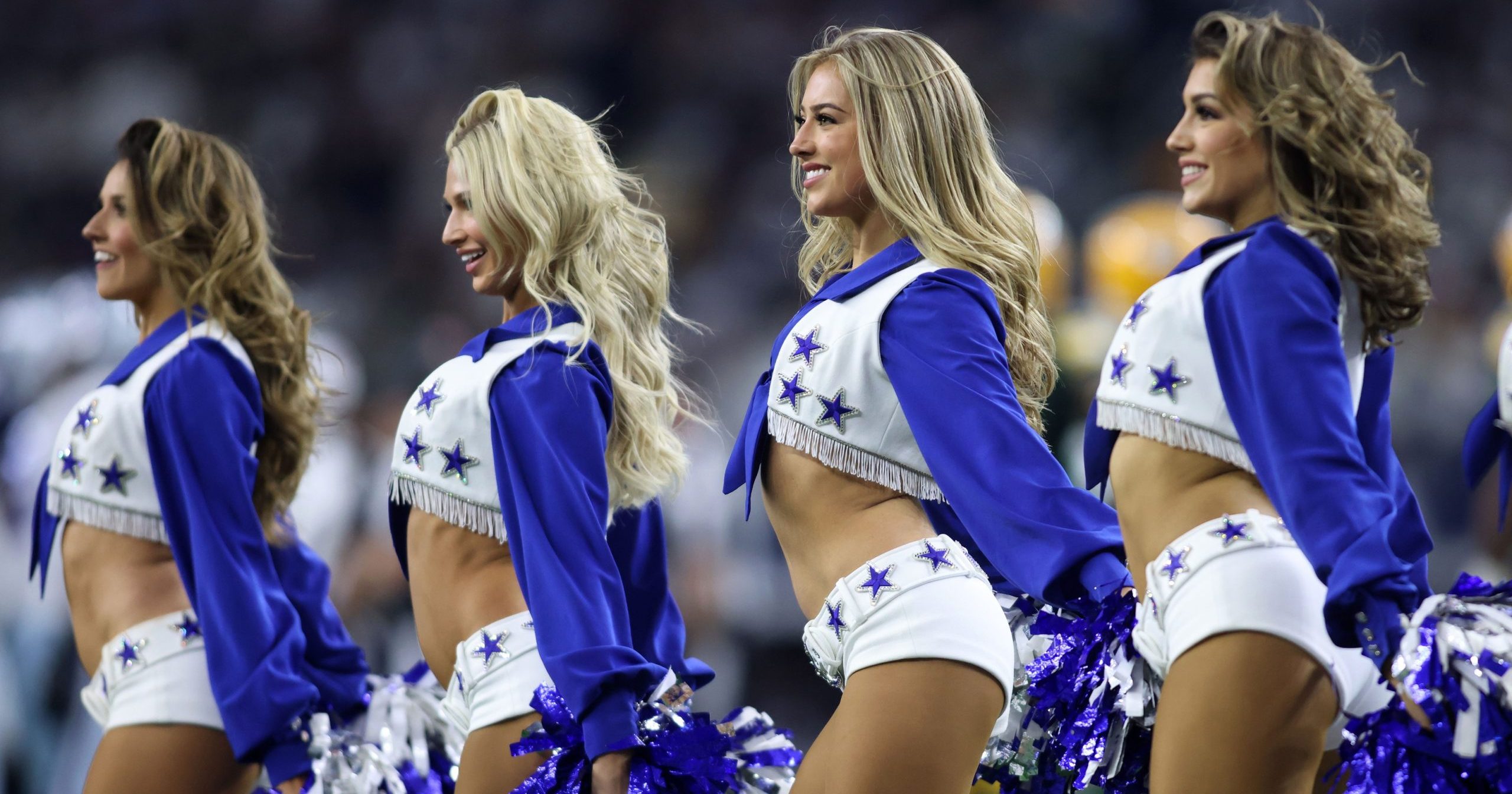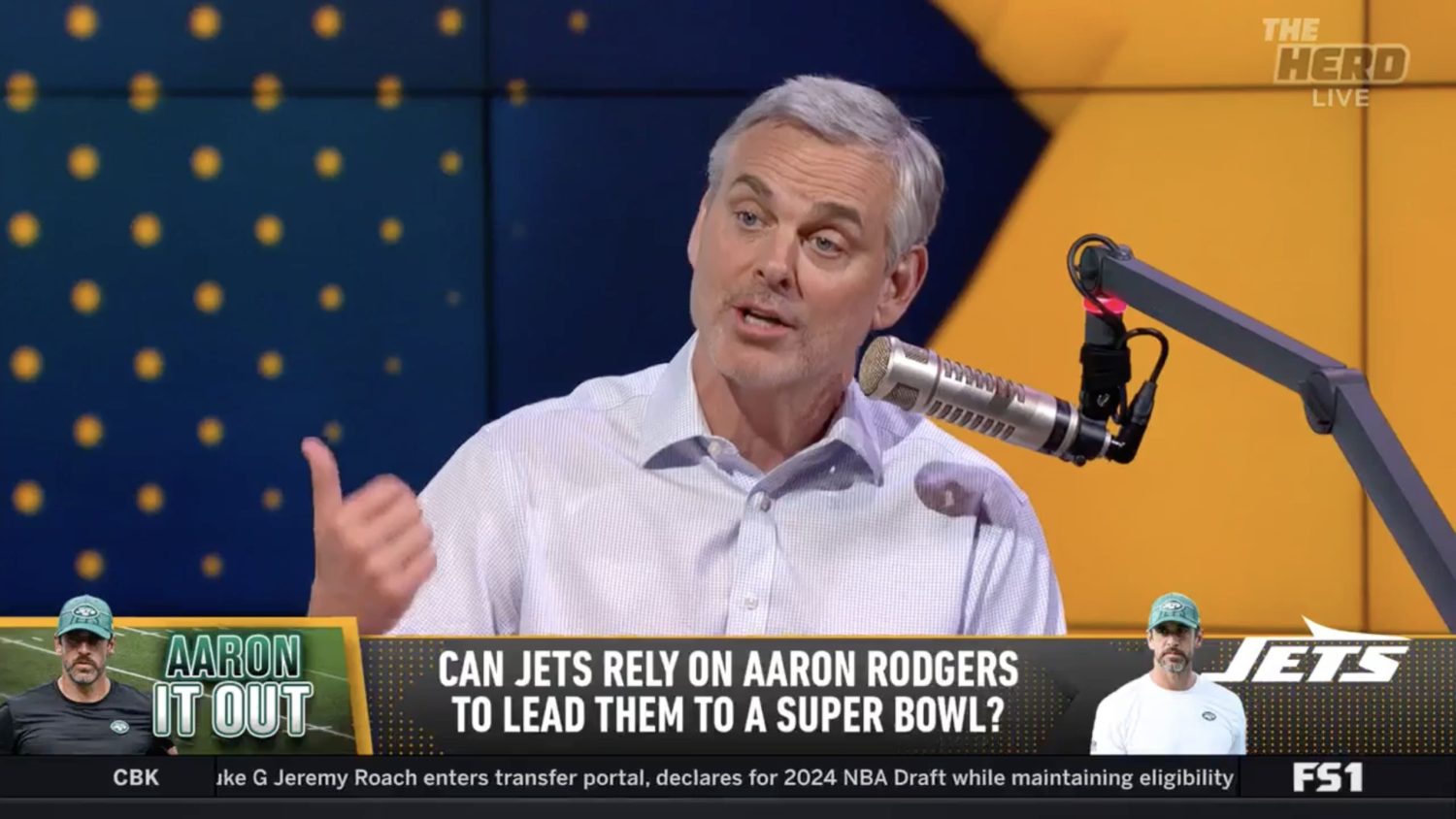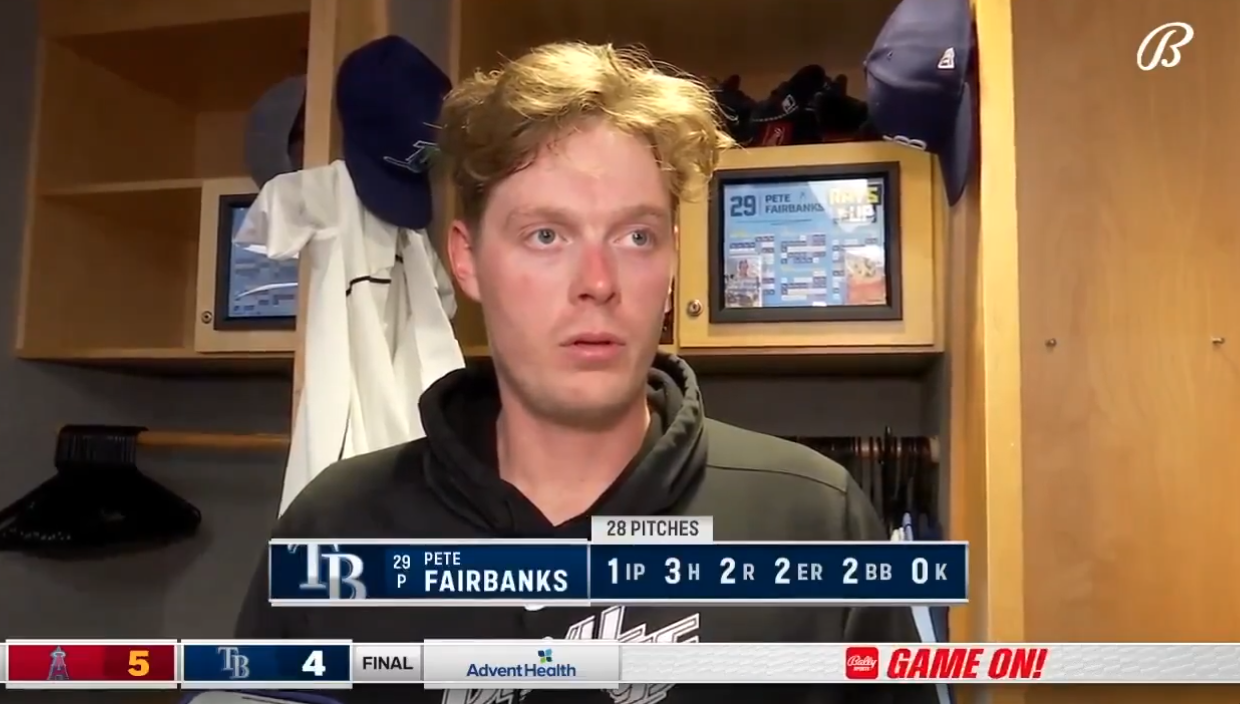A wide-ranging trend for many media companies’ social accounts in recent years is to take notable quotes from athletes and put them up on a graphic, often with some basic emoji like “eyes” or “fire. And one move along those lines Wednesday annoyed Tampa Bay Buccaneers’ quarterback Tom Brady. That came from the way ESPN referenced comments Brady (seen above following last Thursday’s win against the Cowboys) made on his “Let’s Go” podcast (a Sirius XM podcast, with Larry Fitzgerald and Jim Gray) without a link. Here’s that tweet and Brady’s response (via The Spun), then some background on the issues at play here and just how common this is for ESPN.
Tom is outplaying his era 🕰 pic.twitter.com/hz43Yl9QRS
— SportsCenter (@SportsCenter) September 15, 2021
Apparently gone are the days of including the link to the show…https://t.co/vU1ydPcC7U https://t.co/VjB5i1vzmP
— Tom Brady (@TomBrady) September 15, 2021
The tweeting of quotes on images certainly isn’t limited to ESPN. As mentioned, many sports media outlets have been doing things along these lines for some time. In fact, ESPN’s accounts didn’t use to do much of this at all. But they’ve done much more along these lines since the January 2020 hire of Omar Raja from House of Highlights/Bleacher Report, and they’re definitely one of the media outlets regularly doing this now.
And there are some advantages to conveying information this way. It often allows for fuller quotes than you might get in a tweet without an image attached, and it stands out more in a timeline than a tweet without an image. But this practice often gets some criticism when it’s not a quote from a story by that outlet, or even a quote the athlete gave in a wide press conference, but rather a quote from a particular outlet, and when the level of attribution for the outlet is just a small-font “via” at the bottom, and no accompanying link in the tweet or in the accompanying story (when this comes to ESPN, there usually isn’t an accompanying story). And ESPN certainly had room to provide a link in that tweet; the actual tweet they sent beyond the image was five words with no punctuation and a clock emoji.
What’s particularly unusual about this case is not ESPN’s behavior. In fact, this kind of attribution with just a small-font mention at the bottom of the image is relatively common for them, and for many other media outlets using social media this way. What’s notable is that they got criticized for it, and by a highly-prominent athlete. There’s sometimes some criticism for this from the journalist who got the quote in question, or perhaps even the journalist’s outlet, but the criticism’s probably taken a little more seriously inside ESPN when it’s Tom Brady (who, by the way, has an upcoming ESPN+ show) lighting them up to his 2.1 million Twitter followers. In fact, ESPN’s Adam Schefter then quote-tweeted Brady’s complaint (which had the Spotify link to the podcast) with an Apple Podcasts link to the podcast:
Allow me…https://t.co/MijQyCHpF8 https://t.co/RccWobIMLm
— Adam Schefter (@AdamSchefter) September 15, 2021
But it’s worth pointing out how many times this is done without a link, and it’s worth looking at what percentage of ESPN’s social content it makes up. From Tuesday, Sept. 14 through Wednesday, Sept. 15 at 7 p.m. Eastern, @ESPN sent 19 tweets. Three of those were retweets of ESPN personalities (Jeff Passan) or subbrands (The Undefeated, ESPN Fantasy), while six were promotions of various ESPN shows (including Brady’s show, launching in November). One was an original ESPN video story on Roberto Clemente Day, one was a “on this day in sports history” with photos, but no story, three were various highlights, and one was “Which sports jersey would you wear to the Met Gala?” with a thinking face emoji, but no poll or link. Three of the remaining four were these kinds of images with quotes on them, sometimes including tags for the athletes but not for the outlet or journalist involved, with the last tweet a follow-up with photos and stats but still no link. Here are those:
LeBron needs 3021 points to pass Kareem 👀 pic.twitter.com/eAfacetuSR
— ESPN (@espn) September 14, 2021
Does loyalty exist in pro sports?@carmeloanthony shares his thoughts. pic.twitter.com/TgIVnBBydD
— ESPN (@espn) September 14, 2021
Peyton … 😅 pic.twitter.com/SUQB3aGXfj
— ESPN (@espn) September 14, 2021
It’s perhaps particularly notable that the Peyton Manning one didn’t even include a source (for the record, it was on ESPN’s ManningCast show, so they’re not taking it from anyone else, but you’d think they’d want to plug their own thing!). And it’s also notable that the Kareem and Carmelo ones tagged those athletes, but not the outlets they gave the quotes to (Marc Stein and Complex, respectively).
How about over at @SportsCenter, where the Brady quote came from? In that same period from Sept. 14 to 7 p.m. ET Sept. 15, they sent 16 tweets. Of those, six were story links, four were highlights, three were retweets (of Adam Schefter, Paul Biancardi, and ESPN MMA), and one was breaking news without a story. The remaining two were these kinds of quotes on images; here’s the non-Brady one.
Jon Gruden put last night's game in perspective 🐈 pic.twitter.com/uFioSZIGff
— SportsCenter (@SportsCenter) September 14, 2021
Again, there’s no source at all listed there. That did come in a post-game media conference, so there isn’t one specific outlet to credit for it, but even “Jon Gruden’s post-game comments on the wild ending in Ravens-Raiders” would be better. And it certainly would have been possible to point to one of the many stories out there on that quote for more context.
Anyway, the overall takeaway is that referencing quotes on a big image with only a small credit and no attached link is relatively common for ESPN. Again, they’re far from alone there, but it’s certainly notable that this got them some Twitter shade from Brady, and that a prominent ESPN personality then weighed in to provide the link. And while ESPN has generally gotten far better at sourcing others’ work (they used to have many sourcing controversies, but have gotten far better at specific credit for others both in articles and on the air), they (and, again, others) could still do better here.
Brady has a point that it shouldn’t have been hard for ESPN to actually link his podcast if they were going to take a quote from it. And that point should also apply when it’s other media members and outlets providing the quotes, not just someone with the social media presence of Brady. But for comments like these, we appreciate Tom Brady, Media Critic.
[The Spun]





